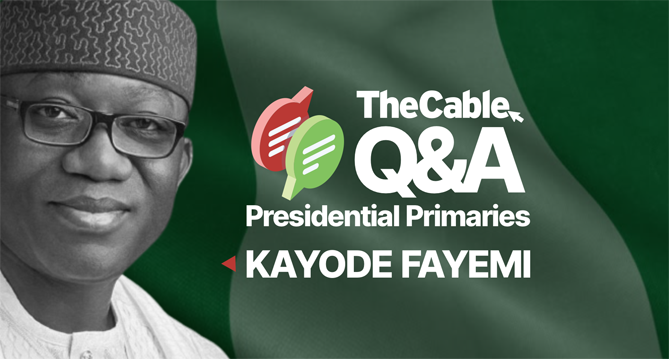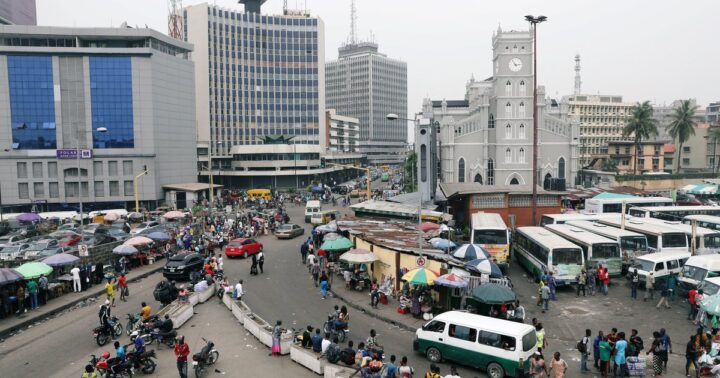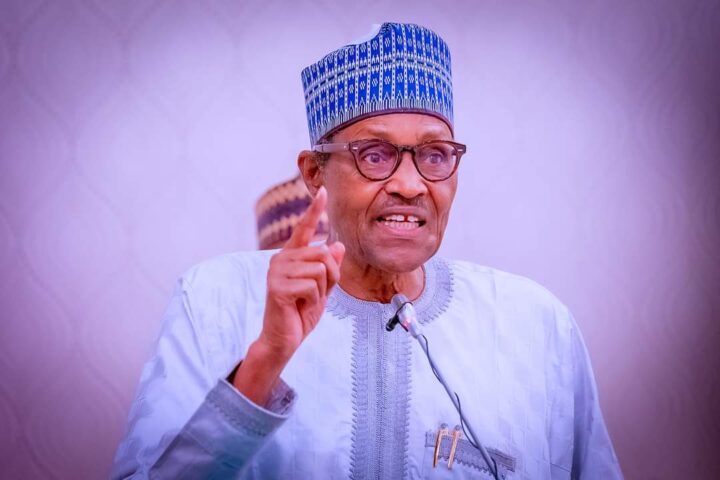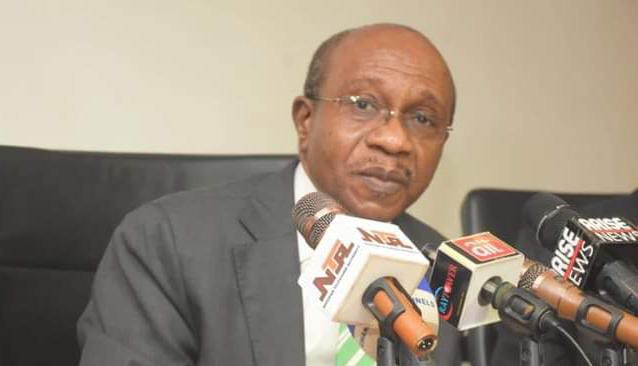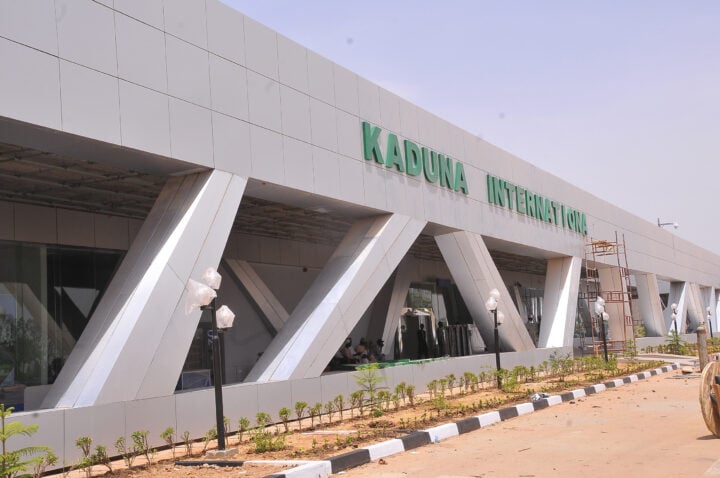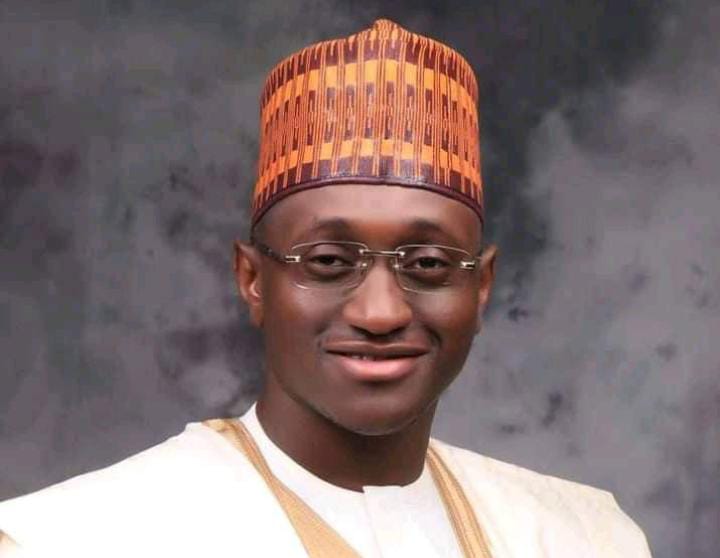As Nigeria’s two biggest parties hold special conventions to pick their presidential flag bearer this weekend, TheCable poses the same questions to a number of contenders on their agenda for Nigeria. Kayode Fayemi, governor of Ekiti state and APC presidential hopeful, takes the first turn…
One of the biggest issues in Nigeria today is insecurity. How would you tackle the multifarious menace of insurgency, banditry, terrorism and kidnapping?
While I agree that we have still have some distance to go before we achieve the level of security we desire, we must build on some of the gains, especially improvements in the north-east, while also addressing the gaps that have seen a worrying trend growing in the north-west and north-central zones.
First, we must improve the effectiveness of policing, driven by an implementation of the new Police Act, assented to by President Buhari in 2021. The new Act will make our Police Force more accountable to the people, service oriented, and less militaristic. To ensure the gains of the Act are maximized, my immediate focus will be to remove the bureaucratic hurdles that have prevented us from recruiting the required number of police officers required to effectively secure the country. Apart from the obvious need to recruit more police officers, there is a need to modernise our policing equipment by providing the required technology to support the boots on group. This includes the use of unmanned aerial vehicles (UAVs), CCTVs, licence plate and facial recognition, and biometric records, amongst others. Some of these solutions are already being implemented in Ekiti state, and have helped us successfully respond to our internal security challenges.
Advertisement
Secondly, we must also minimise the corruption in the security architecture, and I am pleased to see the Buhari government has commenced a holistic review of the conditions of service of police officers to undercut the incentive for corrupt behaviour. This must be supported by strong accountability mechanisms, especially in the area of public finance management, to ensure the funds budgeted and released to the police are utilised for the intended purposes, and that sufficient transparency allows for public verification.
Thirdly, we will need to deal with the perception of the police service. No police accountability mechanism can be considered fair if it fails to inspire public confidence, and we must guarantee independent and fair investigations into public complaints against police.
Finally, what is most important is to deal with the socio-economic root causes of insecurity, bordering on economic opportunities, food security, national cohesion, equity and justice, amongst others. My goal as president will be to evaluate every action we take within this context to ensure we address insecurity holistically
Advertisement
The economy is in a terrible situation with debts piling up, oil revenue dropping and prices of goods and services hitting the roof. What measures you would take to redress the crises?
My experience as governor of Ekiti state will be valuable in tackling the economic challenges we face as a country. We have managed to invest in critical infrastructure, attract investments, and intervened in critical social sectors without increasing the debt portfolio we met upon assumption of office. This was done by growing internally generated revenues; restructuring existing debt to improve our cash flow; and attracting private investment investors and development partners to our state.
Building on this experience, our economic policy will focus on boosting productivity to deliver significant economic growth; price stability to ensure a sustained increase in disposable income; foreign exchange liquidity and business environment reforms to attract foreign investment in critical economic sectors; and ensure discipline spending and debt restructuring to reduce our fiscal deficit.
In addition to some of these short- to medium-term plans, we will also lay the foundation for a period of sustained prosperity by encouraging investments in education, health and technical skills; technology and the digital economy; transport and power infrastructure; and fast track the implementation of laws that encourage investment like the Petroleum Industry Act.
Advertisement
Youth unemployment is one of the biggest challenges facing Nigeria today. What plans do you have to address the situation?
We must recognise that job creation itself is not an act, but the outcome of deliberate actions and policies. Therefore, to support a significant creation of jobs, we must first ensure sustained economic growth, which will then lead to an expansion of economic activity, which is how new jobs are created. We will also focus on creating incentives for growth poles for new jobs, especially those driven by technology and the digital economy. The performance of companies like Outsource Global and Tek Experts is a clear sign that Business Process Outsourcing for example, will be a major growth pole for jobs. In addition to this, the plans to develop Special Agro-Industrial Processing Zones, as well as other Special Economic Zones, will provide an opportunity to create millions of jobs in different economic clusters.
However, we must also address a major labour market failure driven by the skills gap in our economy. With our high unemployment numbers, it is important that we minimize situations where employers cannot fill vacancies due to a shortage of skilled workers. A possible solution to this problem is a partnership between interested states and the federal government to develop a national skills programme, supported by a Labour Management Information System (LMIS) that helps to place trained labour in available jobs.
Petrol subsidy is projected to gulp N4 trillion in the 2022 fiscal year. What would be your own policy choice on pricing?
Advertisement
The passage of the Petroleum Industry Act (PIA) is a major achievement of the Buhari government, and it must be the priority of the successor government to fully implement this act. With the full implementation of the act, the role of government will be limited to regulatory oversight, and this will encourage private sector participation in all areas of the downstream sector.
The short term effects of implementing the Act can be cushioned by a range of incentives which can be agreed and managed transparently by various stakeholders, but the long term effect of adopting this approach will also drive more investments in oil refineries, ensure domestic consumption is met locally, and ultimately make Nigeria a net exporter of petroleum products; signalling an end to decades of energy dependence.
Advertisement
Despite trillions of naira spent on the power sector, we are still not out of darkness. What are we not getting right and how you would tackle the issues?
There are a number of different aspects that need to be tackled. The first is the need to complement our existing national grid with a number of decentralised grids, either at state, regional or cluster level. This will reduce our dependence on an increasingly unstable central grid system, whose failure will usually lead to nationwide blackouts.
Advertisement
Secondly, we need to review our regulatory environment, and I am pleased to see the ongoing constitutional reforms includes an amendment that will allow States to generate, transmit and distribute electricity. You may recall that this is one of our achievements at the governors forum, where we set up a bipartisan team led by Governors Sanwo-Olu and Obaseki to review the various laws in the electricity sector, and highlight areas where the federal government has usurped the constitutional rights of the states in the electricity sector. I also applaud the National Assembly for correcting this ambiguity in the constitution, and will work with my colleagues, the governors, to ensure this reform is ratified at our various state assemblies.
These two interventions will make it easier to resolve the financial bottlenecks that impede power sector, and migrate to a cost-reflective tariff structure. This migration will not only encourage additional investments in the sector, it will also ensure existing players are properly paid for services rendered, and can invest in network improvements to reduce failure.
Advertisement
ASUU strikes have been part of the annual national calendar for decades. How would you address the perennial issues once and for all?
The first step to a solution is an acknowledgement that we have spent about 30 years trying to solve this problem using variants of the same solution. This means we need to all consider policy alternatives, which will involve the trust and cooperation of all parties. In my view, our alternative solutions must include a root and branch review of how we finance tertiary education.
With the fiscal pressures faced by governments around the world, Nigeria will need to maximize its current spend on tertiary education to deliver better outcomes. One of the possible solutions is to allow for full autonomy of universities, and allow government provide a functional scholarship programme to subsidise certain categories of students who are either gifted, or whose parents are unable to afford the cost of tuition. This will enable universities charge those who can afford it cost-reflective tuition, and also ensure university administration is less dependent on government, as is currently the case, while increasing the overall investment in tertiary education.
By providing universities will full autonomy, our public universities will be free to charge what each one considers the real cost of tertiary education; and also reward better performing universities, who will command a premium. Such incentives will raise the overall standard of education, without increasing the fiscal dependence on government.
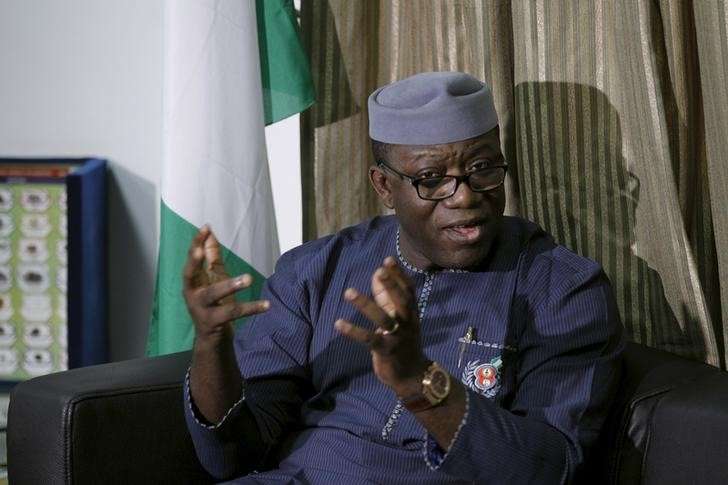
Nigeria has a very worrisome number of out-of-school children. What is the way out?
In Ekiti State, we have the second lowest number of out-of-school children, because we have deliberately invested in free and compulsory basic education. This was done in partnership with the Federal Government, through the Universal Basic Education Commission (UBEC). Since I was sworn in as Governor in 2018, we have seen a 37 per cent increase in primary school enrolment, 35 per cent increase in secondary school enrolment, and a rise in examination pass rate from 56.8 per cent to 70.1 per cent. We achieved all these by focusing on improving the overall learning environment with investments in teacher training, quality of school facilities, and provision of instructional materials.
The primary responsibility for basic education, and by extension the reduction in out-of-school children primarily lies with the states, and their local governments. So a practical way to reduce these numbers will be to consider a review of the current UBEC structure, from a counterpart funding approach to a programme for results. In its current form, what happens is that UBEC will provide a counterpart fund to states, once the states can provide an equal amount from other sources for identified projects, which means that many states struggle to access the funding due to an inability to raise their share of funding. A practical way to resolve this is to convert the programme into one where states are rewarded with grants for achieving specific milestones, especially an annual reduction in the verifiable number of out-of-school children. This will not only provide an incentive to reduce the numbers, but the grant will be conditional, and only used for basic education interventions.
Waste and corruption remain endemic in Nigeria. What would be your own strategy to tackle them?
The Buhari government has laid a good foundation by implementing Treasury Single Account (TSA) and Open Treasury Portal, and the role of the successor administration must start with deepening the implementation of both frameworks; as well as continuing the sub-national reforms from the State Fiscal Transparency, Accountability and Sustainability (SFTAS) program.
In Ekiti, when I assumed office, TSA compliance was a meagre 4 per cent, but today, compliance is now above the 80 per cent threshold. In the same vein, Ekiti was ranked in the 28th place on various transparency and accountability rankings in 2018, but today, Ekiti is ranked 2nd on the Transparency and Accountability Index, and 4th on the Budget Transparency Index. There is a strong correlation between transparency and reduced corruption, and we must deepen such reforms, all the way to local governments, to ensure citizens have sufficient information on how our commonwealth is expended.
Relatedly, we must continue to leverage on technology to enhance budget execution and minimize person to person transactions. A clear example is in the implementation of the e-procurement process in Ekiti State, which has streamlined bid submissions, reduced associated costs and improved transparency.
Secondly, we cannot overemphasise the role of a fair and equitable application of justice. It is important that we continue to strengthen, and maintain the independence of our anti-corruption agencies, while also improving the prosecution and judicial processes, for faster administration of justice. This will not only ensure consequence of corrupt practices are delivered, but will also improve our perception, since justice will also be seen to be done.
Public healthcare in Nigeria is in a shambles and only the elite can afford good care. What would you do differently to change the story?
It is important to recognise that the different tiers of government have defined roles in the delivery of health service as enshrined in the National Health Act of 2014, with delivery of services at the primary and secondary care level under the remit of the States.
With the Basic Healthcare Provision Fund however, the Federal Government has demonstrated a willingness to support States in improving access to care for all citizens. In Ekiti, we have taken advantage of the BHCPF to provide health coverage to an additional 25,000 lives and also pay monthly grants to our facilities. Now is the time to do more, by strengthening the governance of the BHCPF to support states to provide an explicit but guaranteed set of services for all Nigerians, which will move us on the path to achieving Universal Health Coverage.
Secondly, we will unlock the potential of the health sector by actively engaging social impact investors with private capital. This will allow us shift the health sector away from being a cost centre to a net contributor to economic growth, foreign exchange earnings and job creation. For instance, private sector investments in our tertiary hospitals improve their capacity to cater to the needs of Nigerians and citizens of other neighbouring African countries who travel to private hospitals abroad. This is an area the current Government has paid attention to, and we are now seeing investments like the PE funded Evercare Hospital in Lagos, AfDB funded Afe Babaloa Multi-System Hospital in Ekiti, and the proposed AFREXIM-funded African Medical Centre of Excellence in Abuja.
What would you do in practical terms to address the agitation for Biafra?
A fundamental requirement to deal with secessional agitations must start with rebuilding trust among various interest groups in the country, and a sense of common ownership of the country. I already visited traditional and socio-cultural stakeholders across Nigeria as part of my consultations, before announcing my bid to be president, and one of my first steps will be to deepen these consultations, and provide assurances of fair and equitable treatment of all parties. It will also include a clear channel of communication with governors of the south-east region to develop non-military interventions that will reduce the root causes of the agitation, and seek to fully restore the legitimacy of governments across all levels. Some of these solutions will include the use of traditional channels to restore faith and hope in our unity as a nation; an open dialogue on decentralised governance and fiscal federalism; and continuous engagement with thought leaders and institutions within the south-east.
Sections of the country are campaigning for restructuring, particular in the sharing of oil revenue and the political set-up of the country. How would you handle these agitations?
As a two-term governor, and chairman of the Nigeria Governors Forum, I have been at the forefront of negotiating the governance structure, especially as it relates to what I call the tyranny of unfunded mandates suffered by states. So the starting point will be to complete or implement the revisions to the vertical allocation formula between the federal government and sub-nationals. Thereafter, we should openly debate the various options for implementing fiscal federalism, but ensuring no state is left behind, as we have seen that we are only as strong as our weakest links. While the ongoing debates on revenue allocation are healthy, my view is the focus needs to shift to collaborations between the federal government and states, as well as inter-state and regional collaborations, to maximise the impact of limited resources on the people.
What is your BIG IDEA for a new Nigeria?
My big idea for a new Nigeria is one built on prosperity. For the past six decades and beyond, our forebears toiled for independence, preserved our unity, and though not perfect, they have bequeathed us a nation that has survived through what we believe is the most turbulent part of our history.
To do this, three things readily come to mind. First we must harness our human capital and improve our level of productivity; secondly we must create a safe, secure and investment friendly environment that encourages inflow of FDIs, and finally we must ensure that our justice system is fair and equitable.
Add a comment
